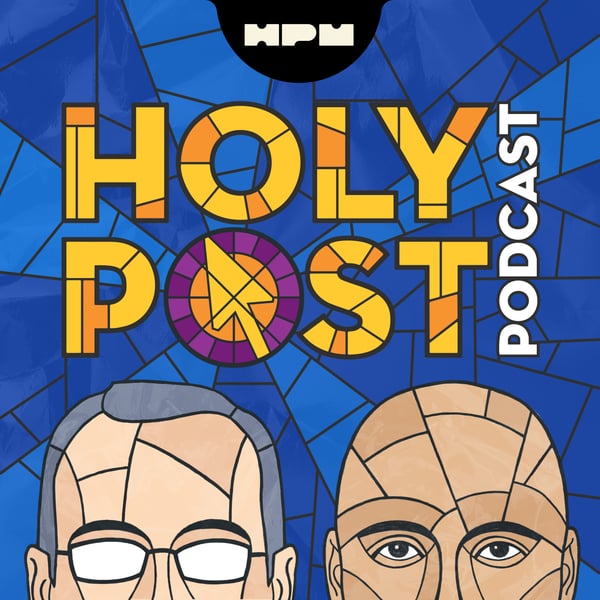Episode 450: The Evangelical Industrial Complex with Love Thy Neighborhood
The Holy Post
Phil Vischer
4.6 • 4.1K Ratings
🗓️ 31 March 2021
⏱️ 47 minutes
🧾️ Download transcript
Summary
Have you wondered why so many megachurch leaders have been embroiled in scandals, or why there are so many Christian celebrities today? It’s not accidental. It’s the predictable outcome of the systems behind much of popular consumer Christianity. In this special episode co-produced with the Love Thy Neighborhood podcast, Jesse Eubanks joins Skye to explore the way business interests and economics have replaced Christian values to drive many parts of American evangelicalism. Featuring multiple interviews, investigative reporting, and commentary, this episode will pull back the curtain on the evangelical industrial complex.
Transcript
Click on a timestamp to play from that location
| 0:00.0 | Hi everyone, it's Sky. Just a quick note before today's show. This is a special podcast that we |
| 0:05.2 | co-produced with our friends over at the Love Thy Neighborhood podcast. If you're unfamiliar with |
| 0:10.0 | their show, I really recommend going over to Love Thy Neighborhood.org and checking it out. They |
| 0:14.6 | have excellent episodes on all kinds of issues and how they intersect with the Christian faith. |
| 0:19.8 | This episode, which we worked on together, is about something I wrote about years ago, which I called |
| 0:24.7 | the Evangelical Industrial Complex, or the way that economics impacts the way so much of the American |
| 0:30.7 | Evangelical Church operates. It's something we've touched on repeatedly on the Holy Post, but I |
| 0:35.5 | think this in-depth look at it will help you a lot. So enjoy this special episode of The Holy Post, |
| 0:40.4 | and I'll be back next week with Phil and Christian for another episode of Commentary, |
| 0:44.9 | an interview and maybe some occasional butt news. |
| 1:01.7 | So in January 1961, President Eisenhower gave his final speech to the nation, |
| 1:07.1 | and a large part of that speech almost half actually was about war. |
| 1:10.6 | We now stand ten years past the midpoint of a century that has witnessed four major wars |
| 1:16.8 | among great nations, three of these involved our own country. So after World War II, America created |
| 1:22.6 | a new industry, an arms industry that would permanently manufacture weapons and tanks and |
| 1:28.7 | necessary materials for war, which came in handy because we then fought in the Korean war and |
| 1:34.1 | then in the Cold War. And Eisenhower recognized the necessity of being able to supply ourselves |
| 1:39.8 | for conflict. We have been compelled to create a permanent armament industry, a vast proportion. |
| 1:46.1 | But Eisenhower, he also recognized something else that an industry employing thousands of Americans |
| 1:51.8 | that was dependent on war, that could have really negative consequences, that this had the potential |
| 1:57.2 | to become something that could disrupt the very fabric of our society. We recognize the |
| 2:02.0 | imperative need for this development, yet we must not fail to comprehend its grave implications. |
... |
Please login to see the full transcript.
Disclaimer: The podcast and artwork embedded on this page are from Phil Vischer, and are the property of its owner and not affiliated with or endorsed by Tapesearch.
Generated transcripts are the property of Phil Vischer and are distributed freely under the Fair Use doctrine. Transcripts generated by Tapesearch are not guaranteed to be accurate.
Copyright © Tapesearch 2025.

